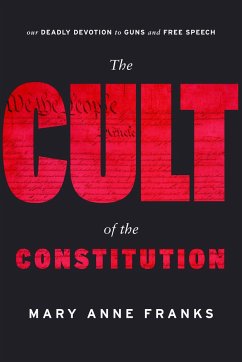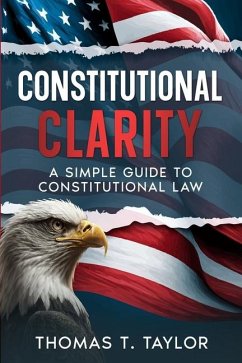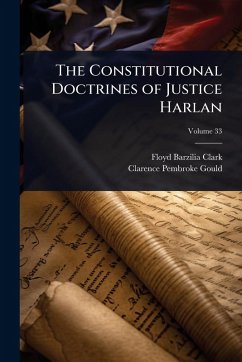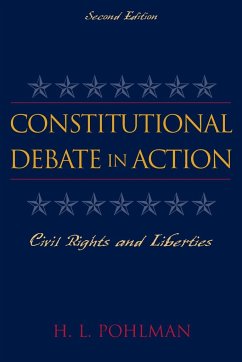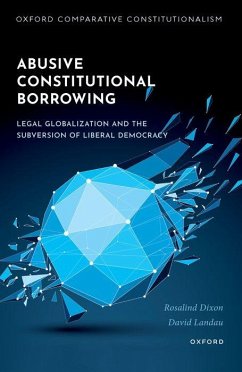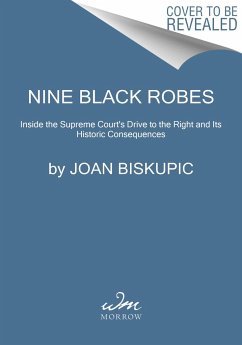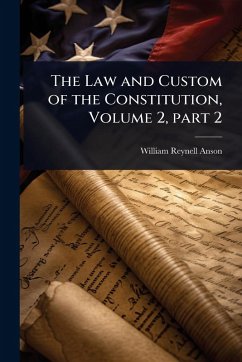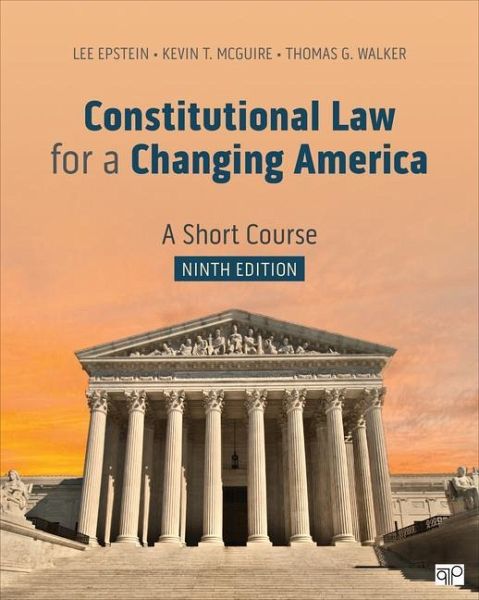
Constitutional Law for a Changing America
A Short Course
Versandkostenfrei!
Versandfertig in über 4 Wochen

PAYBACK Punkte
87 °P sammeln!




Drawing from political science as much as from legal studies, Constitutional Law for a Changing America: A Short Course helps students realize that Supreme Court cases are more than just legal names and citations. Ideal for a one semester course, the Ninth Edition covers recent landmark cases and new scholarship in a more condensed format.
Lee Epstein (PhD, Emory University) is the University Professor of Law & Political Science and the Hilliard Distinguished Professor of Law at the University of Southern California. She is a fellow of the American Academy of Arts and Sciences and the American Academy of Political and Social Science. A recipient of 12 grants from the National Science Foundation, Epstein has authored or co-authored more than 100 articles and essays and 18 books. She is currently co-editing The Oxford Handbook of Comparative Judicial Behaviour. Professor Epstein's empirical research is frequently cited in the New York Times, among other news media. Kevin T. McGuire (PhD, The Ohio State University) is Professor of Political Science at the University of North Carolina at Chapel Hill. A former Fulbright Scholar at Trinity College, Dublin, he is the author of Understanding the U.S. Supreme Court: Cases and Controversies and The Supreme Court Bar: Legal Elites in the Washington Community. He is the editor of New Directions in Judicial Politics, and coeditor, with Kermit L. Hall, of Institutions of American Democracy: The Judiciary. Thomas G. Walker (PhD, University of Kentucky) is the Goodrich C. White Professor Emeritus at Emory University, where he won several teaching awards for his courses on constitutional law and the judicial process. His book A Court Divided, written with Deborah J. Barrow, won the prestigious V. O. Key Award for the best book on Southern politics. He is the author of Eligible for Execution and coauthor of The Supreme Court Compendium: Data, Decisions, and Developments, 7th Edition, with Lee Epstein, Jeffrey A. Segal, and Harold J. Spaeth.
Produktdetails
- Verlag: Sage Publications
- 9th edition
- Seitenzahl: 792
- Erscheinungstermin: 30. November 2023
- Englisch
- Abmessung: 254mm x 204mm x 32mm
- Gewicht: 1379g
- ISBN-13: 9781071879016
- ISBN-10: 1071879014
- Artikelnr.: 68442908
Herstellerkennzeichnung
Libri GmbH
Europaallee 1
36244 Bad Hersfeld
gpsr@libri.de
Für dieses Produkt wurde noch keine Bewertung abgegeben. Wir würden uns sehr freuen, wenn du die erste Bewertung schreibst!
Eine Bewertung schreiben
Eine Bewertung schreiben
Andere Kunden interessierten sich für



